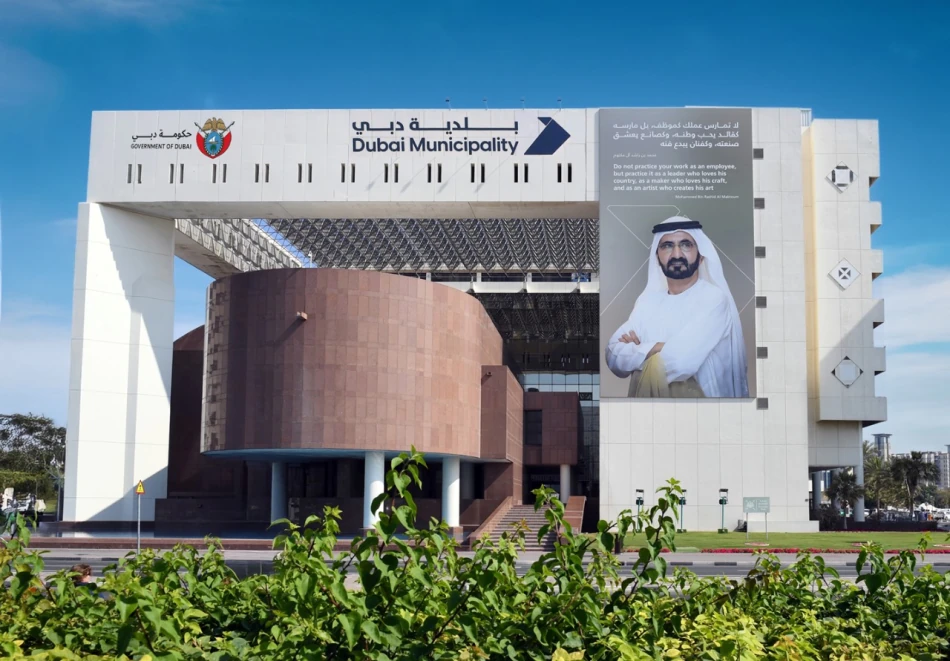
Dubai's 90% of Beaches and 80% of Parks Become Inclusive for People of Determination
Dubai Municipality is showcasing its comprehensive initiatives and services designed to make Dubai the world's best destination for people with disabilities. The city has transformed 90% of its public beaches and 80% of its parks to be fully accessible, while introducing smart technologies and emergency systems specifically designed for people with different abilities.
The municipality is presenting these achievements at the 7th International Expo for People of Determination, running from October 6-8, 2025, at Dubai World Trade Centre. This participation reflects Dubai's broader strategy to create an inclusive city that integrates cutting-edge technology with accessibility features.
Badr Anwahi, Executive Director of Public Facilities at Dubai Municipality and head of the inclusion team for people of determination, emphasized that the expo serves as a platform bringing together government institutions, private companies, and international experts. "The wellbeing and happiness of people of determination tops Dubai Municipality's priorities," he said.
Beach Access Revolution
Dubai has achieved something remarkable with its beaches. Today, 90% of public beaches in the emirate are accessible to people with disabilities. Jumeirah 2 Night Beach has been equipped with advanced facilities for people with disabilities and elderly visitors, ensuring a comfortable experience for everyone.
The municipality also launched the Middle East's first emergency evacuation system for people with disabilities at Al Mamzar Park beaches. This system covers the entire beach area with clear warning lights, evacuation messages, and speakers that guide visually impaired individuals to evacuation points. There's also a guidance device at the training center that accompanies people with hearing and visual impairments throughout different locations, serving as both a comprehensive guide and tracking device.
Parks Meet Global Standards
Dubai's major parks have been transformed to meet international accessibility standards. Mushrif National Park, Creek Park, Zabeel Park, Safa Park, Al Mamzar Beach Park, and the Quranic Park now feature wheelchair-accessible pathways and entrances, Braille signage for the blind, fixed playground equipment, accessible restrooms, and nearby parking spaces.
These facilities include quiet rooms specifically designed for people with autism, plus staff trained in sign language communication. The result is that 80% of public parks in the emirate are now accessible to people with disabilities, designed according to the highest inclusivity standards.
Dubai Frame has also been upgraded with services including dedicated parking spaces with cameras and audio services, handrail-lined pathways in outdoor areas, wheelchair charging points in the reception area, wheelchairs available inside the Frame, and a Dubai Frame layout in Braille. Future additions will include sensory rooms, adaptive play areas, and new navigation paths.
Dubai Municipality set a Guinness World Record for the world's longest Braille handrail at Dubai Frame, stretching 319.11 meters along the structure. This marks the first world record specifically focused on facility accessibility for people with disabilities.
Smart Navigation and Safety
The municipality will showcase its interactive "Makani" access map, displaying locations friendly to people with disabilities, including designated parking spaces, accessible entrances, and bus stops. This project aims to provide unified addresses for every building entrance, supporting economic activities and enabling smart services while reducing emergency response times.
Dubai is also expanding its seismic monitoring system by adding five new stations and developing the "DB-Safe" smart application. This app issues audio and visual notifications during significant ground tremors. The city uses robots in awareness workshops for people with disabilities and children to increase awareness about natural hazards.
Community Engagement Programs
The "Access Ambassadors" initiative continues to select individuals from strategic partners and the community to work within access teams. The municipality organizes free training and awareness courses for members about Dubai Building Code standards and criteria, spreading accessibility culture in buildings and public facilities while encouraging owners and investors to make their buildings disability-friendly.
Dubai has also established a recycling collection center designed for people with disabilities, developed in cooperation with Dubai Centre for People of Determination and Community Development Authority. This facility operates 24/7 using solar power and smart sensors to monitor capacity, allowing people to easily deliver materials from their cars as part of Dubai's circular economy transformation plan.
These initiatives position Dubai as a global pioneer in accessibility, moving beyond symbolic gestures to create comprehensive, real-world experiences that serve everyone in what aims to be the world's best city for living, working, and visiting.
Most Viewed News

 Sara Khaled
Sara Khaled






